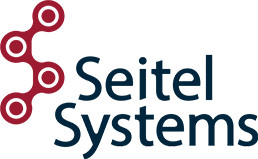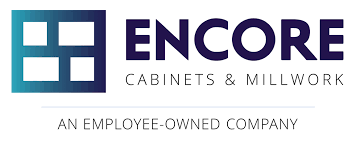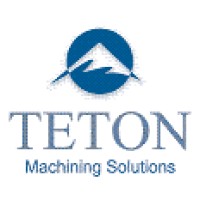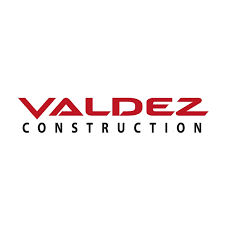Specializing in protecting the interests of ESOP participants and ensuring compliance with fiduciary responsibilities across all 50 states.

At ESOP 411, we have been proudly serving ESOP’s for over 30 years, helping businesses transition smoothly from privately owned companies to employee-owned enterprises. With decades of experience, we understand the complexities of establishing and managing ESOP’s and we are committed to guiding you every step of the way.
Our services go beyond the initial transition. We provide ongoing support to ensure your ESOP operates efficiently, complies with all regulations, and achieves its long-term goals. From Fiduciary oversight and valuation reviews to participant communication and governance support, we are here to help your ESOP thrive.


Ensuring compliance and protecting participant interests.

Guiding companies through the process of becoming employee-owned.

Helping evaluate and monitor the value of your ESOP.

Educating employees about their roles and benefits in the ESOP.
30+years experience in guiding and managing ESOP's
Customized strategies to fit your business and employee needs
Focused on compliance, participant interests, and long-term success
Comprehensive services from transition to ongoing ESOP management
Building trust with our clients for over 30 years.







An Employee Stock Ownership Plan (ESOP) is a qualified retirement plan that allows employees to become owners of the company they work for. Instead of purchasing shares directly, employees earn ownership over time through company contributions. The ESOP holds these shares in a trust, and employees receive their benefits when they retire or leave the company. For business owners, an ESOP serves as a succession plan that allows them to sell the company while keeping it employee-owned. With proper management, ESOPs create a strong ownership culture, boosting employee engagement and long-term company success.
Selling your business to an ESOP offers several advantages over traditional sales. It provides a tax-efficient exit strategy while allowing you to reward and empower your employees through ownership. Unlike selling to a third party, an ESOP lets you preserve your company’s legacy and maintain stability for your workforce. Because employees become owners, ESOPs often lead to higher engagement, productivity, and long-term business success. Additionally, an ESOP sale can be structured to provide flexibility in your transition, allowing you to step back on your terms while ensuring the future of the company remains in trusted hands.
ESOPs offer significant tax benefits for both business owners and employees. For owners selling to an ESOP, a properly structured transaction can allow for capital gains tax deferral under Section 1042 of the IRS Code, provided the company is a C corporation and other requirements are met. Additionally, ESOP-owned S corporations can benefit from substantial tax savings, as the ESOP’s ownership percentage is exempt from federal income tax. Employees also enjoy tax advantages since they accumulate ESOP shares tax-deferred until they take distributions, typically at retirement. These benefits make ESOPs a powerful tool for succession planning and long-term wealth building.
There are over 6,500 ESOPs in the United States today, covering millions of employee-owners. ESOPs have been around since the 1950s, but they became more widely adopted after the passage of the Employee Retirement Income Security Act (ERISA) in 1974, which provided a legal framework for these plans. Since then, ESOPs have grown into a popular succession planning tool, allowing business owners to transition ownership while providing employees with a valuable stake in the company.
Determining if your business is a good candidate for an ESOP depends on several factors. Ideally, your company should have a stable financial history, strong cash flow, and a dedicated workforce. ESOPs work best for businesses with 20 or more employees, as this allows for broader employee participation and ownership. Additionally, you should be ready to transition from being an owner-operated business to a more employee-driven structure. If you’re looking for a succession plan that empowers employees and preserves your company’s legacy, an ESOP could be an ideal solution. Our team at ESOP 411 can help assess your company’s readiness and guide you through the decision-making process.
The ESOP trustee plays a crucial role in ensuring the plan operates in the best interest of the employee-owners and remains compliant with legal and regulatory requirements. The trustee is responsible for overseeing the management of the ESOP, including monitoring company performance, approving share transactions, and ensuring that fiduciary duties are met. They also make decisions related to the plan’s administration and asset valuation, helping to safeguard the financial interests of the employees who participate in the ESOP.
An ESOP has several ongoing compliance requirements to ensure it remains in line with federal regulations. These include annual valuations to determine the fair market value of the company’s shares, as well as regular filings with the Department of Labor and the IRS. ESOPs must also adhere to the rules surrounding employee eligibility, contributions, and distributions. Additionally, fiduciaries must ensure that the plan is operating in the best interest of participants. At ESOP 411, we help manage these compliance requirements, providing peace of mind and ensuring your ESOP remains legally sound and efficient.
In an ESOP transaction, your company is valued at fair market value through a formal valuation process. This independent valuation is typically conducted by a qualified appraisal firm, which assesses the company’s financial performance, industry trends, and other key factors. The goal is to determine the price at which shares will be bought or sold within the ESOP, ensuring that the transaction is fair to both the company and its employee-owners.